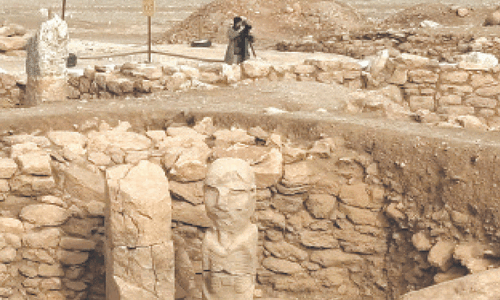 JEDDAH, Aug 16: Former Ugandan president Idi Amin, who died at Jeddah on Saturday, had been living in luxury in Saudi Arabia for around two decades.
JEDDAH, Aug 16: Former Ugandan president Idi Amin, who died at Jeddah on Saturday, had been living in luxury in Saudi Arabia for around two decades.
The former ruler arrived in the country as a political refugee in the mid-1980s after spending a few years in Libya and Iraq following his overthrow at the hands of Tanzanian troops and Ugandan rebels in 1979.
He lived in almost total obscurity. Very little was known about his life, the number of his children and family accompanying him, and his sources of income.
But Jeddah residents say Idi Amin lived in a villa rented for him by the government of Saudi Arabia in the posh Al Hamra district overlooking the Red Sea.
Treating him under political asylum rules, the Riyadh government was paying him an undisclosed amount as a monthly stipend, while a number of his children worked in ordinary jobs.
He was rarely interviewed by the Saudi press, but in an interview a few years ago with Uganda’s Sunday Vision, Amin said he was at peace with himself and that his only passion was Islam.
“I am leading a quiet life and committed to my religion, Islam, and Allah. I don’t have problems with anyone,” Mr Amin told the newspaper.
His reign lasted from 1971, when he seized power from president Milton Obote, to 1979, when Tanzanian troops and Ugandan rebels stormed Kampala and removed him from power.
Amin claimed that, “unlike some African heads of state”, he did not flee Uganda with state funds.
“But I am satisfied with what I am getting and even paying school fees for a number of my orphaned relatives in Uganda, and helping needy people,” he said. His pastimes included reciting Quranic verses, swimming, fishing in the Red Sea, reading and watching television, particularly news programmes, he said.
Idi Amin also enjoyed playing his accordion and singing songs from his days as a soldier in the King’s African Rifles, the African battalion of British troops during World War II.
He also revealed that he was still getting his favourite Ugandan foodstuffs flown to him, including cassava flour, fresh cassava, millet flour and matoke (green bananas).
Idi Amin was born in 1925 into the Muslim Kakwa tribe in Koboko, northwestern Uganda, close to the borders of Zaire — now the Democratic Republic of Congo — and Sudan.
AMIN’S SUCCESSOR: Idi Amin’s successor as Ugandan president, Godfrey Binaisa, said on Saturday that he would shed no tears over his death.
“I don’t regret his passing away,” Mr Binaisa said, but sarcastically quipped: “I sympathize with his family members. I send my condolences to his wife Madina and family.”—AFP
































